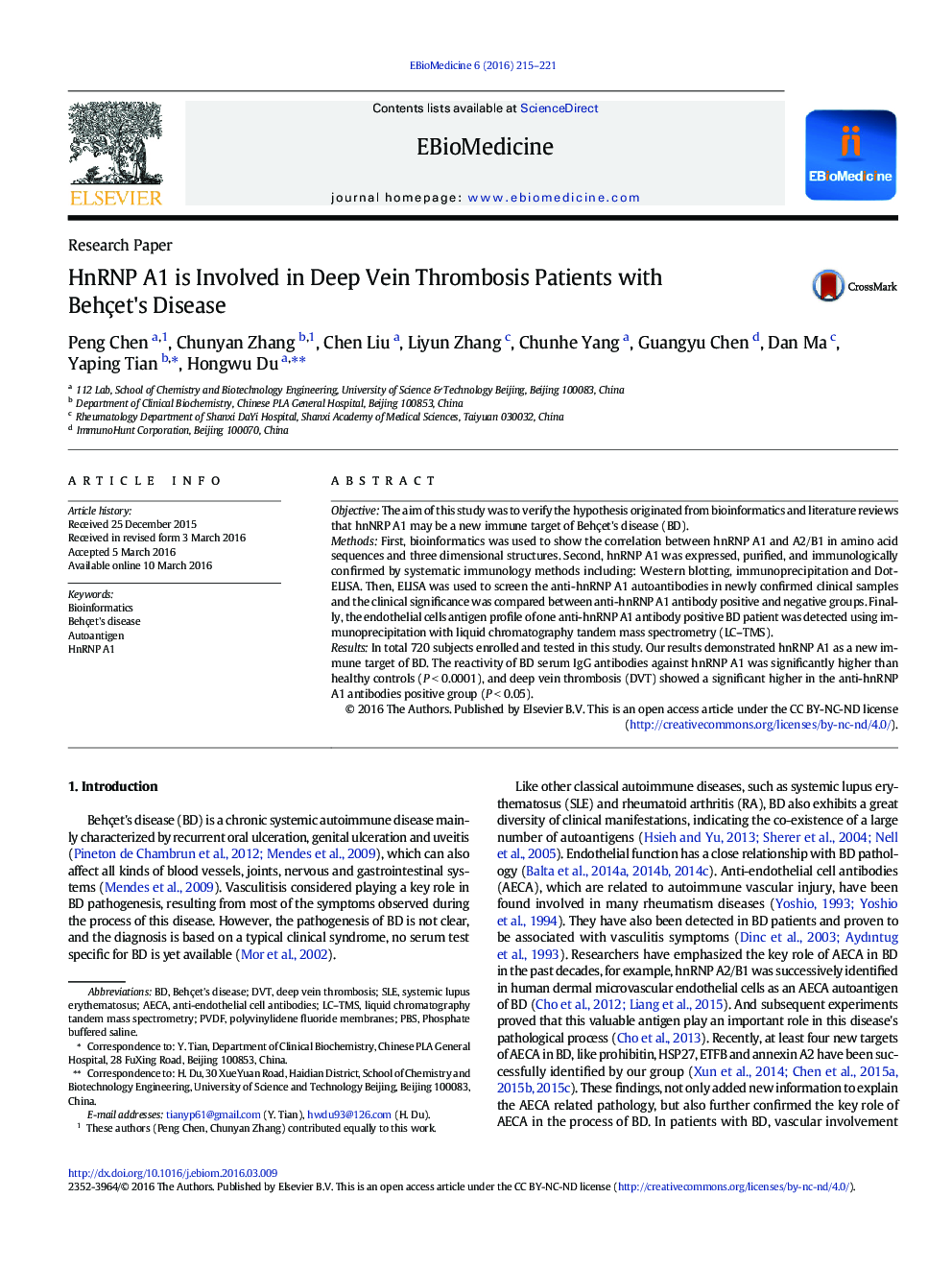| Article ID | Journal | Published Year | Pages | File Type |
|---|---|---|---|---|
| 2120679 | EBioMedicine | 2016 | 7 Pages |
•Bioinformatics was used to predict that hnRNP A1 may play a role in BD.•HnRNP A1 was immunologically confirmed as an autoantigen of BD.•Deep vein thrombosis has a close relationship with anti-hnRNP A1 antibody in patients' blood circulation.Behçet's disease (BD) is a chronic systemic autoimmune disease. The pathogenesis of BD is still not clear, and the diagnosis is based on typical clinical syndromes. Autoantigen identification was considered a key to solve this problem. This study was to verify the hypothesis suggested by bioinformatics that hnRNP A1 may be a new autoantigen of BD. Among the 720 subjects enrolled and systemic tested, our results demonstrated hnRNP A1 as a new autoantigen of BD, and associated with deep vein thrombosis.
ObjectiveThe aim of this study was to verify the hypothesis originated from bioinformatics and literature reviews that hnNRP A1 may be a new immune target of Behçet's disease (BD).MethodsFirst, bioinformatics was used to show the correlation between hnRNP A1 and A2/B1 in amino acid sequences and three dimensional structures. Second, hnRNP A1 was expressed, purified, and immunologically confirmed by systematic immunology methods including: Western blotting, immunoprecipitation and Dot-ELISA. Then, ELISA was used to screen the anti-hnRNP A1 autoantibodies in newly confirmed clinical samples and the clinical significance was compared between anti-hnRNP A1 antibody positive and negative groups. Finally, the endothelial cells antigen profile of one anti-hnRNP A1 antibody positive BD patient was detected using immunoprecipitation with liquid chromatography tandem mass spectrometry (LC–TMS).ResultsIn total 720 subjects enrolled and tested in this study. Our results demonstrated hnRNP A1 as a new immune target of BD. The reactivity of BD serum IgG antibodies against hnRNP A1 was significantly higher than healthy controls (P < 0.0001), and deep vein thrombosis (DVT) showed a significant higher in the anti-hnRNP A1 antibodies positive group (P < 0.05).
